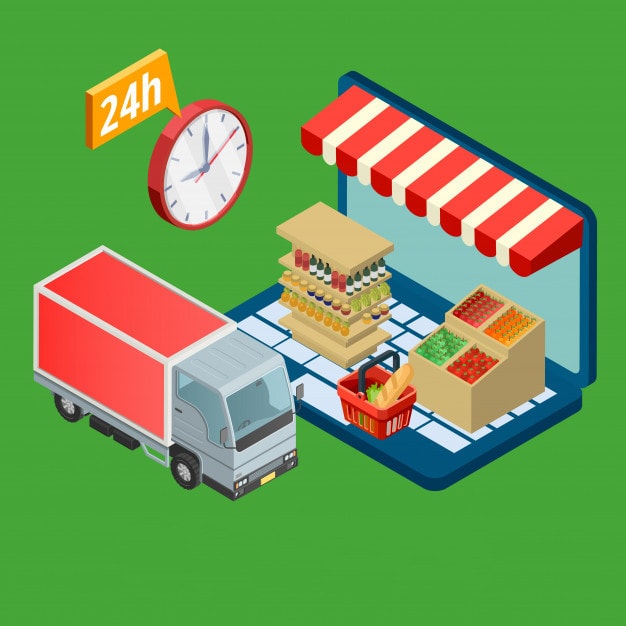The market space in marketing is defined as a virtual market place in the commercial world, where the limitations of physical boundaries are not applicable. It is an integration of numerous areas that are considered market places via technology or via an exchange environment that is operated by electronic information.
Table of Contents
Meaning of market space
The market space is considered a bi-directional unit as both the buyers and sellers can buy and sell through transactions in such portals.
Notable examples of market space are micro-blogging sites, e-commerce platforms, etc. like twitter, ebay.com, quicker.com, Myntra, Etsy, Alibaba, Amazon.com, etc. Electronic transactions are used for the distribution of goods and services in the marker space.
Characteristics of market space
The characteristics of market space are as follows-
- The transactions that take place in the market space occurs via online media or internet
- There is no face-to-face transaction as the electronic media does not offer any such option
- An interested party can find information in the market space about the available products and not anything about the products
- There are no actual showrooms or physical stores. These are replaced by the internet and computers that enable the option of buying
Significant components of market space
The major components of market space are as follows-
1. Buyers
The world is full of potential buyers and customers who are continuously surfing the web world for a good bargain. The goods and services are advertised on several platforms which are accessible via internet connection. The consumers are on the look-out for collector’s items, entertainment, and customized items.
In a market space, the actual power rests with a customer or the buyer who can easily search for the required item on various websites. It is easy to get a detailed description of the relevant product and service, compare the prices at different portals, make a bid for the item they think worthwhile and even negotiate the prices.
2. Sellers
One of the essential components of the market space is sellers. There are many market spaces on the web, which are offering millions of products and services to the consumer. These sellers are actively involved in huge-scale advertising to lure in old as well as new customers. A buyer can find new offerings on an everyday basis as the products and services are replaced at regular intervals to maintain the fresh look of the site.
Sellers are seeing the market spaces very convenient for selling their products as they can gain exposure to the innumerable number of buyers which would not have been possible via physical stores. Moreover, the sellers can save on the additional costs that are part and parcel of retail outlets but do not have a bearing on the market spaces.
3. Intermediaries
There are numerous types of intermediaries in the market space that provides several services on the web. The online intermediaries are adept at handling the scenarios of online markets by offering infrastructure services, matching buyers with sellers and vice-versa, and helping both of them to complete a transaction admirably.
4. Other business partners
Besides the intermediaries, the market space has other business partners like the shippers who collaborate with the supply chain on the internet
5. Products
The market space is a vast ground where almost every kind of product is available at the web platforms. Buying is a straightforward option as it is possible with the help of a single click of the mouse. The digitalization of services and products is likely in the market space.
Most of the costs in digital products are fixed thus profits increase once volumes start increasing and this is a huge benefit for sellers
6. Back end
An essential component of the market space is back end of the market which includes activities related to order fulfillment, packaging, payment processing, purchasing from suppliers, inventory management and delivery
7. Infrastructure
The infrastructure of market space includes networks, software, and hardware
8. Front end
Interaction in the market space is via a front end, and the business processes include shopping cart, electronic catalogs, seller’s portal, payment gateway, and a search engine
9. Support services
One of the components of market space is the support services that are available in the web world. These include trust services and certification that ensures security to the knowledge providers.
Objectives of market space
The goals of market space are as follows-
- Establishing brand awareness through the market space
- Selling a product or a service in the market space
- Providing product support
- Offering customer service via the market space
Advantages of market space
The advantages of market space are as follows-
- The market space is already an established market, and there is no need to create demand
- Selling on the market space is at a much faster pace because as soon as uploading starts, the buyers start going through and buying the products and services
- The cost of products in market space is very less compared with the value of products in physical stores as the sites can save additional expenses like stocking costs, maintenance of physical stores and transportation costs
- An essential advantage of market space is that it is convenient for the consumers as they do not have to travel from one market place to another in search of the products they require
- A market space does not need rent nor does it require the physical presence of the employees
- Shopping at market space is very easy with a single click of the mouse
- As the internet is available almost everywhere, there is no such problem as inaccessible
- A market space has an established customer support network that offers help when required regarding the products and services and that too around the clock 24*7
- A market space has its payment escrow services. This helps the customer to make payments with ease without worrying about the misuse of large transactions
- It is possible to see the acceptability of a product by going through the reviews
- The market space has already gained the trust of its audiences and once a product or service is uploaded it gains benefit from the already established trust factor of the market space
- Marketspace can attract high traffic that includes millions of customers
- Marketspace is one of the quickest ways to expand online profile and footprint
- The seller has to pay a commission to use the market space
Disadvantages of market space
The disadvantages of market space are as follows-
- The downside of market space is that there is no possibility of trying the product. One has to look at the specifications and posted information and assume the suitability of the product
- In market space, a buyer will not be able to take the help of employees who acts as a guiding force
- The market space cannot boast of any direct communication between the buyer and the seller
- As the customer base is shared with several sellers, the market space losses the opportunity of upselling and cross-selling the products
- The market space is a product-focussed market and not seller-focussed
- There is no customer loyalty in market space because they are not regular visitors. They are random visitors who like things and then buys as there are several options available to them
- The competition level in the market space is anytime higher than found in other market places
- Market spaces are known for offering various discounts and incentives to lure in the customers. Even if the sales volumes increase the profit margins do not appear at the same rate
Ever wondered how rapidly the digital marketplace is expanding in today’s economy?
According to Statista, global e-commerce sales are expected to reach $6.3 trillion in 2023, up from $4.9 trillion in 2021. This significant growth highlights the increasing importance of market spaces in the global economy. (Source: Statista, “Retail e-commerce sales worldwide”, 2023)
Furthermore, it’s projected that over 2.14 billion people worldwide will be purchasing goods and services online in 2023, signifying a substantial shift towards virtual marketplaces. This trend underscores the necessity for businesses to establish a strong presence in market spaces to reach a global audience. (Source: eMarketer, 2023)
Liked this post? Check out the complete series on Marketing



Thank you so much for your contribution